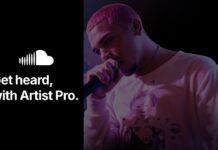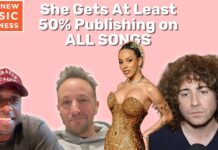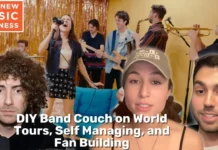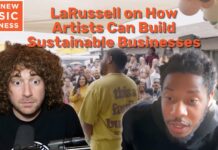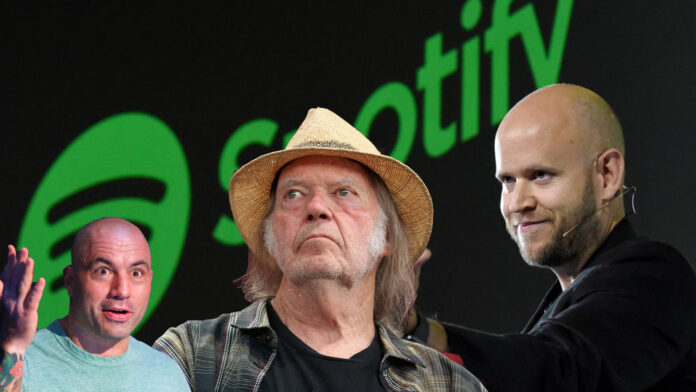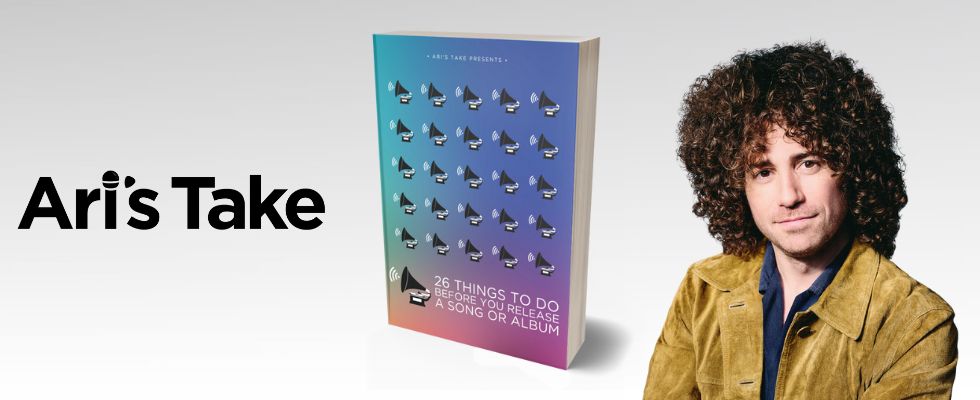The news that took over the entire world this past week was how Neil Young gave Spotify an ultimatum to either remove Joe Rogan’s podcast or Young would remove his music.
Why? Young said in an open letter to his management and record label “I am doing this because Spotify is spreading fake information about vaccines — potentially causing death to those who believe the disinformation being spread by them… I want you to let Spotify know immediately TODAY that I want all my music off their platform. They can have Rogan or Young. Not both.”
Spotify chose Rogan. And Warner Records (Neil Young’s label) obliged and issued takedown notices to Spotify.
If @spotify doesn’t immediately remove @joerogan, I will release new music onto the platform. #youwerebeautiful
— James Blunt (@JamesBlunt) January 29, 2022
Now, let’s first get the facts out of the way because as I went down YouTube rabbit holes of this controversy over the past few days, there’s a lot of confusion, dare I say, misinformation about this.
Rogan (and some of his guests) have made factually and scientifically inaccurate claims about the vaccines and Covid treatment – according to hundreds of medical and science experts.
Of course, YouTube, Apple podcasts, Spotify and all other content hosting platforms host plenty of controversial content. The reason Young singled out Spotify was because they own the exclusive rights to The Joe Rogan Experience. You can’t find JRE on Apple, Amazon or any other podcast platform.
A couple years ago, Spotify shifted from simply being a streaming platform that hosts music, to essentially a media company that acquires, promotes, distributes and produces content.
Remember when Spotify opened up direct distribution for some Artists?
Instead of having to use a distributor (or label), some Artists were invited to distribute directly to Spotify. The major labels shut this down real quick because in their contracts with Spotify it said that Spotify wouldn’t act as a label and compete with them (and the majors owned a piece of Spotify at the time). Spotify backtracked and shut the program down.
But then they got into podcasting.
Spotify owns exclusive rights to many podcasts and podcast production companies, but the big one, of course, is the Joe Rogan Experience which they acquired the exclusive rights for an estimated $100 million.
Many people say that because Spotify now produces and owns these shows, that they also need to own what’s said on these shows.
So, Neil Young believed Spotify should be held accountable for what was said on Joe Rogan’s show.
Some screamed censorship and cancel-culture. Others screamed accountability and public health.
In the end, Spotify agreed to put up advisories (almost like how Facebook, Twitter and Instagram do on posts about Covid), for episodes that discuss Covid.
Rogan responded to all the controversy with a 10 minute long Instagram video on Sunday where he was very candid about the situation, exclaiming that he’s had a wide range of guests on the show with a wide range of conversations and opinions. Including both Dr. Sanja Gupta, who’s widely respected in the scientific community, and Dr. Robert Malone who isn’t. Rogan admits that he oftentimes takes his conversations down rabbit holes and explores topics outside the mainstream. He applauds Spotify’s decision to put up advisories and welcomes the overall conversation.
It’s worth a watch.
View this post on Instagram
Ok, let’s unpack this all a bit.
Joe Rogan is a comedian who became famous from hosting Fear Factor, a show about getting people to eat cockroach sandwiches.
His podcast has featured everyone from Neil Degrasse Tyson to Elon Musk, Jewel to Russel Brand. And everyone in between. With the list heavily weighted on comedians.
He’s got a massive platform, averaging an estimated 11 million listeners per episode.
People have a right to call him or his guests out on what they believe is misinformation or blatantly false. And he has a right to say it. And Neil Young has a right to remove his music if he wants.
And since Spotify owns the show, they should be held accountable for what’s said on it.
Just like the New York Times, Wall Street Journal, Fox News and MSNBC should be held accountable for the opinions spouted on their platforms.
But, for god sake put down the pitchforks. Cancel culture is destructive and unhealthy.
If you haven’t seen it yet, I highly encourage you to watch 15 Minutes of Shame on HBO Max. It’s executive produced and narrated by Monica Lewinksy and profiles people who have been canceled over the past couple years who shouldn’t have been. You know all of these stories and you probably participated in the outrage.
If you want to remove your music because you disagree with Spotify’s decision to keep those episodes up and not edit (or censor) the content that comes from their exclusive shows, go for it. That’s your prerogative. I wouldn’t recommend it. It will tremendously hurt your music career (and bottom line). Neil Young said that Spotify represents 60% of his total listenership. And since much of that was undoubtedly from editorial playlists, he (nor Warner Records) will pick that 60% back up from the very few listeners who will pop over to Apple or Amazon to listen to Neil Young now.
But of course, Neil Young is in a position to do this. Last year he sold 50% of his publishing rights to Hipgnosis for $150 million. He ain’t strapped for cash. Other Artists don’t have this luxury or privilege.
Every time Spotify gets in the news, it unearths old (misleading) talking points and confused positions from musicians and other industry talking heads.
I’ve seen the fervor pick up again because of this Spotify controversy.
The claims that Spotify doesn’t pay or that Artists can’t survive on Spotify royalties are patently false.
To clear up the confusion, Spotify released it’s Loud and Clear data where it stated that over 13,400 Artists made over $50,000 in 2020 just from Spotify royalties. 42,100 Artists made over $10,000. Artists are making livings from Spotify royalties – especially those who live in parts of the world where the cost of living is far lower than the US.
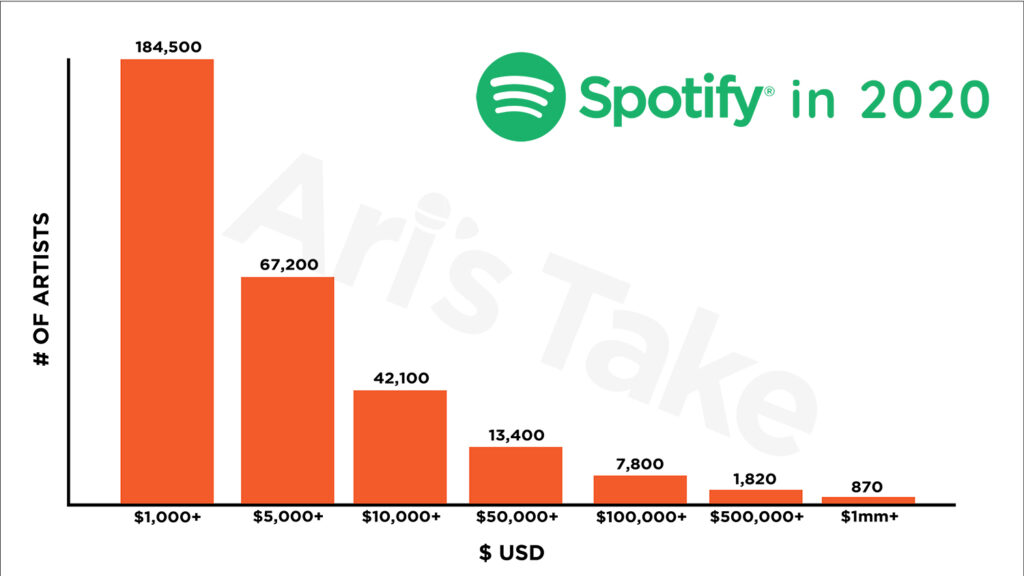
I know of many, many artists, personally, who have told me that Spotify has single handedly changed their lives and has given them an income in music – which they never had before. They of course are not the ones you hear about in the news decrying Spotify’s low payouts.
“The narrative that streaming doesn’t pay isn’t completely true.” – VÉRITÉ, 350 million Spotify streams
+VÉRITÉ on NFTs and 350 Millions Streams Without a Label
Discussing Spotify’s low pay-per-stream, disregards the fact that never before in the history of the music industry could Artists at scale make a living on their recorded music without a fanbase.
Right or wrong, this is the reality now. How? Artists get included in popular playlists all the time which catapults their streams (and revenue) long before they build a fanbase. And, unlike radio, Artists actually earn royalties from this.
Even though Tidal and Apple Music pay far more per stream than Spotify does, more artists are earning more money on Spotify than any other platform.
And now, there’s a campaign where many of the DSPs are fighting the new US mechanical royalty rate which would require them to pay publishers and songwriters more.
On its face, yeah it sounds bad. Songwriters deserve to be paid more. Full stop.
+Songwriters! Registering with ASCAP or BMI is Not Enough to Get Paid
However, you’re only hearing part of the conversation. What you’re not getting, is that currently labels (and Artists) make about 5x what songwriters (and publishers) make from streaming. Is this fair? I don’t think so. Who has the ability to change this discrepancy? Labels.
The major labels could single-handedly give songwriters and publishers a hefty raise if they wanted to. But of course, that would mean less money for them. So they won’t.
Spotify (and Apple) pay out about 70% of their revenue to rights holders.
YouTube only pays out about 55%. Spotify doesn’t care where that 70% goes. If, by law, they need to pay out more to songwriters – on top of the 70% – where is that money going to come from? What if the amount they are required to pay out is 40% more? So now, Spotify must pay out 110% of their revenue? How is that sustainable?
+How To Actually Achieve Your Goals in 2022
Yeah yeah, don’t come at me with their multi-million dollar penthouse suites in NYC blah blah. That’s a drop in the bucket when we’re discussing billions of dollars here.
Spotify is the dominant streaming platform currently. It’s how the majority of people in Western countries listen to music. And it is the most influential streaming platform in the music industry.
Am I annoyed and upset that some Artists get included in big playlists and other very deserving ones don’t? Absolutely. Super shitty. I released an album last year and got NO LOVE from a Spotify editorial. Not fair. I get it.
+How Much Each Distributor Pays for Spotify and Apple Music
And yeah, previously if you had 10,000 fans who bought your $10 album and listened 10 times to it, you’d make $100,000. Now if your 10,000 fans listen to your 10 track album 10 times, you make around $3,500. Ouch.
BUT, previously if you had 100 fans who bought your $10 album and listened 10 times along with a million people who heard your song 10 times a month on the radio, you’d make $1,000 once, and $0 a month.
Now if you have 100 fans and a million listeners (who don’t know who you are) and stream your song 10 times a month, you make $35,000 a month.
See the difference? This new reality is great for some. Real bad for others.
But you can’t look at streaming the same way you looked at sales. Asking fans to stream you on Spotify, might not be the best for your bottom line. They will anyway whether you ask them or not. There are many other things you can ask your fans to do which will get you paid a lot more than streams – like come to your shows, back your crowdfunding or NFT campaign, buy merch, buy your vinyl, get VIP packages, purchase exclusive releases on Bandcamp for ‘name your price,’ attend your ticketed livestreams, attend your free livestreams and tip/subscribe, and on and on.
NFTs for Music (Explained in Musician Terms)
Streaming can be a loss-leader for fan retention and acquisition. But it can also be a serious revenue generator.
Spotify isn’t the enemy here. They single-handedly brought back the music industry from the death spiral it was in during the late aughts.
But the internet has also completely devalued recorded music.
No way around it. People now believe music should be free. Started with Napster. Continued with YouTube. And now, Spotify.
But value is coming back to music. If you’ve been paying attention to the NFT space at all, you’ll see the next wave will be much brighter for Artists.
But for now, why not focus on making great music and bringing that music to your audience. Keep your music on Spotify. But, by all means, speak the hard truths in (and out) of your music. That’s what has always set Artists apart. And what always will.

